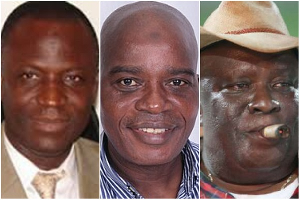One of Ghana’s music producers, Enock Agyepong, who is also the Chief Executive Officer (CEO) of Speech Production, a Tema-based music production company, has said it is illegal for disk jockeys (DJs) and radio presenters to collect money (payola) from musicians before playing their music on the radio.
In an interview with BEATWAVES, last Saturday, Enock Agyepong noted that in Ghana today, musicians do not earn much and survive on live shows so; it is unfair for presenters or DJs to collect money from the musicians.
Enock Agyepong disclosed that the music industry in Ghana is currently surviving on what he termed as ‘life support’ and needs to be rescued.
The young and dynamic music producer stressed that payola has killed the music industry, adding, “Right now, we are just doing music just for the sake of the fact that we love to do it, there is nothing else we can do apart from music. We are just hanging there believing that we can rescue it from collapsing.”
Enock further said radio DJs and presenters have manipulated the music industry to the extent that the musician has to pay payola before his or her music could receive airplay. This, he said, has crippled the music industry, forcing a number of music producers to quit.
He, however, said the industry could be rescued through a concerted effort and also correcting existing mistakes within the industry to prevent the increase rate of payola.
On the issue of piracy, he noted “piracy is killing the industry with unauthorised reproduction of copyright works like CDs, cassettes, DVDs and failure by authorities to deal decisively with the anomaly.”
He said the high level of ignorance about the operations of the music business among Ghanaian musicians, producers, executive producers and record labels among other industry stakeholders, has led to a violation of contractual obligations particularly by artistes and failure to demand accountability from the industry leaders.
He was of the view that although the music industry and other creative sectors contribute an average of four to five percent of country’s GDP, the government is paying less attention to it.
Entertainment of Tuesday, 26 August 2014
Source: Daily Guide













